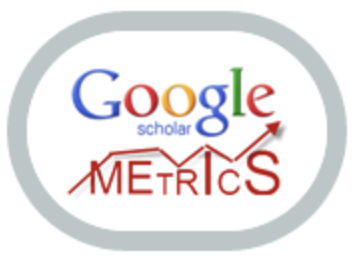Reading Circles Program: dialogues between the formation of readers and the socio-emotional skills present in the National Curricular Common Base
DOI:
https://doi.org/10.29327/256399.10.1-7Keywords:
Keywords: Reading. Reader training. Socioemotional skills.Abstract
This article aims to analyze the Reading Circles Program, carried out by the Secretary of Education of the State of Ceará in partnership with the Fernand Braudel Institute of World Economy (IFBE), for the training of reflective readers who seek to expand access to literary knowledge. Therefore, we seek to understand how the project dialogues with the paradigm of reader training and the socio-emotional skills of the National Curricular Common Base (BNCC). We found the presence of several competences of the BNCC in the reports used as corpus of analysis. We identified how such competences are developed through the practice of reading during the meetings of the Circles, in addition to understanding how the Program participants mediate with the text, stimulating reading and human subjectivity.
References
BRASIL. Ministério da Educação. Base Nacional Comum Curricular. Brasília: MEC, 2021.
CAVALCANTI, J. Caminhos da Literatura Infantil e Juvenil: dinâmicas e vivências na ação pedagógica. São Paulo: Paulus, 2002.
FRANCO, C. P. Por uma abordagem complexa da leitura. In: TAVARES, K; BECKER, S.; FRANCO, C. P. (org.). Ensino de Leitura: fundamentos, práticas e reflexões para professores da era digital. Rio de Janeiro: UFRJ, 2011. p. 26-48.
INSTITUTO PRÓ-LIVRO. Retratos da leitura no Brasil. 5a ed. Disponível em: http://plataforma.prolivro.org.br/retratos.php. Acesso em: 10 ago. 2021.
KLEIMAN, A. Oficina de leitura: teoria e prática. Campinas, SP: Pontes; EDUNICAMP, 1996.
LAJOLO, M. Do mundo da leitura para a leitura do mundo. 6a ed., 13. impr. São Paulo: Ática, 2008.
LAROSSA, J. Experiência e alteridade em educação. Revista Reflexão e Ação, Santa
Cruz do Sul, v. 19, n. 2, jul./dez., 2011. Disponível em: https://online.unisc.br/seer/index.php/reflex/article/view/2444/1898. Acesso em: 13 jan. 2022.
LOIS, L. Teoria e prática da formação do leitor: leitura e literatura na sala de aula. Porto Alegre: Artmed, 2010.
MOTA, B. 2020. Programa Círculos de Leitura articula jovens durante período de distanciamento social. Disponível em: https://www.ceara.gov.br/2020/04/22/programa-circulos-de-leitura-articula-jovens-durante-periodo-de-distanciamento-social/. Acesso em: 16 set. 2021.
OLIVEIRA, M. A. A literatura para crianças e jovens no Brasil de ontem e de hoje: caminhos de ensino. São Paulo: Paulinas, 2008. (Coleção Literatura & Ensino)
PAGÉS, C.; LAMAS, M. A. (org.). Círculos de leitura: a arte do encontro. São Paulo: Recriar Editorial, 2018.
PLATAFORMA educacional. 2018. Competências socioemocionais na BNCC. Disponível em: https://www.somospar.com.br/wp-content/uploads/2018/07/ebook-competencias-socioemocionais-bncc.pdf. Acesso em: 14 set. 2021.
PORVIR. Especial Socioemocionais. [2014]. Disponível em: https://socioemocionais.porvir.org/. Acesso em: 03 fev. 2022.
PROGRAMA Círculos de Leitura. Disponível em: https://www.site.braudel.org.br/c%C3%B3pia-c%C3%ADrculos-de-leitura. Acesso em: 16 set. 2021.
PORTAL do governo brasileiro. BNCC: Competências socioemocionais como fator de proteção à saúde mental e ao bullying. Disponível em: http://basenacionalcomum.mec.gov.br/implementacao/praticas/caderno-de-praticas/aprofundamentos/195-competencias-socioemocionais-como-fator-de-protecao-a-saude-mental-e-ao-bullying. Acesso em: 14 set. 2021.
TODOROV, T. A literatura em perigo. Tradução de Caio Meira. Rio de Janeiro: DIFEL, 2009.
YUNES, E. A experiência da leitura. São Paulo: Loyola. 2003.
Downloads
Published
How to Cite
Issue
Section
License
Copyright (c) 2022 Flávia Nicaele Sousa Silva; Sammya Santos Araújo

This work is licensed under a Creative Commons Attribution 4.0 International License.
Authors who publish in this journal agree to the following terms:
a) Authors retain copyright and grant the journal the right of first publication. The articles are simultaneously licensed under the Creative Commons Attribution 4.0 International Public License (CC BY 4.0) which allows the sharing of the work with acknowledgment of its authorship and initial publication in this journal.
b) Discursividades journal offers immediate free access to its content, following the principle that making scientific knowledge available to the public free of charge provides greater global democratization of knowledge.






